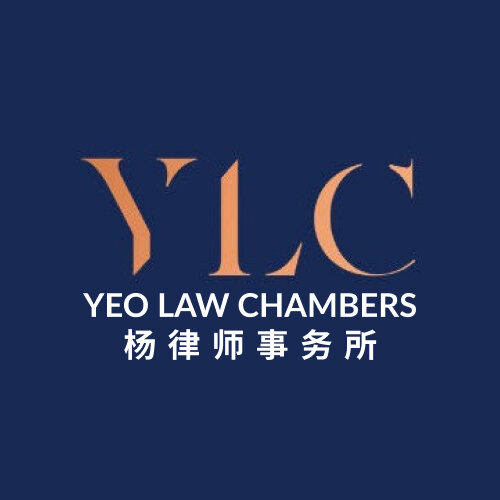Best Renewable & Alternative Energy Lawyers in Johor Bahru
Share your needs with us, get contacted by law firms.
Free. Takes 2 min.
List of the best lawyers in Johor Bahru, Malaysia
About Renewable & Alternative Energy Law in Johor Bahru, Malaysia
Renewable and alternative energy is an emerging sector in Johor Bahru, reflecting both Malaysia’s commitment to sustainable development and the state government’s support for cleaner sources of power. The main forms of renewable energy in Johor Bahru include solar, biomass, biogas, hydropower, and wind energy, with solar photovoltaic projects being the most widespread. Laws and policies have been crafted to guide investment, development, and regulation of these technologies, with the dual goal of meeting national energy needs and protecting the environment. Legal considerations range from licensing and compliance to joint ventures, incentives, and managing environmental impacts.
Why You May Need a Lawyer
Navigating the legal landscape for renewable and alternative energy projects can be complex. Here are common situations where legal assistance may be necessary:
- Advising on regulatory compliance for energy projects
- Drafting and reviewing contracts with partners, suppliers, or landowners
- Securing licenses and permits to operate or develop energy facilities
- Negotiating Power Purchase Agreements (PPAs) with utility companies
- Managing land use and environmental issues, including Impact Assessments
- Structuring foreign investment or joint ventures in the energy sector
- Resolving disputes related to infrastructure, project delays, or supply agreements
- Advising on government incentives, grants, and tariffs for renewable energy
- Intellectual property protection for energy technologies
- Handling mergers, acquisitions, or divestments in energy assets
Local Laws Overview
There are several legal frameworks and guidelines in place in Johor Bahru, governed by both federal and state regulations. Nationally, the key legislation is the Renewable Energy Act 2011, which sets out the licensing regime, Feed-in Tariff (FiT) system, and the administration of the Sustainable Energy Development Authority Malaysia (SEDA Malaysia). The Electricity Supply Act 1990 also outlines generation, transmission, and distribution requirements.
At the state level, Johor’s policies align with the national framework but may add specific requirements or incentives, especially concerning land use and environmental protections. Environmental Impact Assessments are often mandatory under the Environmental Quality Act 1974 for large-scale energy projects. Development on reserved land or involving native land rights may require additional review and community engagement.
Any business or individual seeking to develop a renewable energy project must ensure compliance with licensing, safety, technical standards, and all environmental regulations. Power Purchase Agreements must be negotiated with Tenaga Nasional Berhad (TNB) or other utility providers, with terms conforming to government guidelines.
Frequently Asked Questions
What is considered renewable or alternative energy in Johor Bahru?
Renewable energy refers to sources that are naturally replenished, such as solar, wind, biomass, biogas, and hydroelectric power. Alternative energy also includes energy sources that are alternatives to conventional fossil fuels and have lower environmental impacts.
Is approval required to set up a solar power system in Johor Bahru?
Yes, approvals and permits are required for most solar installations. For rooftop systems, you need to adhere to guidelines from the Energy Commission (Suruhanjaya Tenaga) and possibly local council regulations. Large installations may also require environmental assessment and feed-in tariff applications through SEDA Malaysia.
What incentives are available for renewable energy projects in Johor Bahru?
Incentives may include feed-in tariffs, investment tax allowances, and grants. SEDA Malaysia administers the main financial incentives, and some local incentives may be available for specific technologies or innovation initiatives.
Who regulates renewable energy in Johor Bahru?
Key regulators include the Energy Commission (ST), SEDA Malaysia, Department of Environment, and local municipal councils. For licensing and power purchase agreements, Tenaga Nasional Berhad (TNB) plays an important role.
Do I need an Environmental Impact Assessment for my project?
It depends on the scale and type of the project. Most large-scale renewable energy projects, or those impacting environmentally sensitive areas, require Environmental Impact Assessments under the Environmental Quality Act 1974.
Can foreign investors participate in renewable energy projects?
Yes, foreign investment is allowed in Malaysia’s renewable energy sector, with conditions regarding local partnerships and compliance with investment laws. Legal guidance is crucial to ensure all requirements are met.
How are disputes in renewable energy projects resolved?
Disputes may be resolved through negotiation, mediation, arbitration, or court proceedings. The best approach depends on the contracts in place and the specifics of the dispute.
What is a Power Purchase Agreement (PPA)?
A Power Purchase Agreement is a contract between an energy producer and an off-taker (usually a utility) that outlines the terms of electricity sale and purchase, including pricing, duration, and obligations.
Are there restrictions on the export of renewable energy?
As of now, electricity exports are regulated and require approval from the Energy Commission and relevant government agencies. The policies on cross-border energy trading are evolving.
Where do I start if I have a renewable energy idea or business plan?
Start by consulting with a lawyer to understand the regulatory requirements, conduct a feasibility study, and approach relevant authorities such as SEDA Malaysia or the Energy Commission for guidance on applications and incentives.
Additional Resources
Consider reaching out to these organizations and agencies for more information or assistance:
- Sustainable Energy Development Authority (SEDA) Malaysia
- Energy Commission (Suruhanjaya Tenaga)
- Department of Environment (DOE) Malaysia
- Johor State Economic Planning Unit
- Malaysian Investment Development Authority (MIDA)
- Malaysian Green Technology and Climate Change Corporation (MGTC)
- Tenaga Nasional Berhad (TNB)
- Johor Bahru City Council and relevant local authorities
- Renewable Energy industry associations in Malaysia
- Local universities and research centers focused on renewable energy
Next Steps
If you are considering entering the renewable or alternative energy sector in Johor Bahru, taking the right legal steps is essential. Begin by consulting a lawyer experienced in energy and environmental law to assess your specific needs. Prepare all required documentation, including business plans, land agreements, and technical details of your project. Engage with relevant government agencies as early as possible to ensure smooth approval processes. Regularly monitor regulatory updates, as policies in this sector can change rapidly. With the proper legal guidance, you can minimize risks, maximize incentives, and contribute positively to Johor Bahru’s growing sustainable energy landscape.
Lawzana helps you find the best lawyers and law firms in Johor Bahru through a curated and pre-screened list of qualified legal professionals. Our platform offers rankings and detailed profiles of attorneys and law firms, allowing you to compare based on practice areas, including Renewable & Alternative Energy, experience, and client feedback.
Each profile includes a description of the firm's areas of practice, client reviews, team members and partners, year of establishment, spoken languages, office locations, contact information, social media presence, and any published articles or resources. Most firms on our platform speak English and are experienced in both local and international legal matters.
Get a quote from top-rated law firms in Johor Bahru, Malaysia — quickly, securely, and without unnecessary hassle.
Disclaimer:
The information provided on this page is for general informational purposes only and does not constitute legal advice. While we strive to ensure the accuracy and relevance of the content, legal information may change over time, and interpretations of the law can vary. You should always consult with a qualified legal professional for advice specific to your situation.
We disclaim all liability for actions taken or not taken based on the content of this page. If you believe any information is incorrect or outdated, please contact us, and we will review and update it where appropriate.











